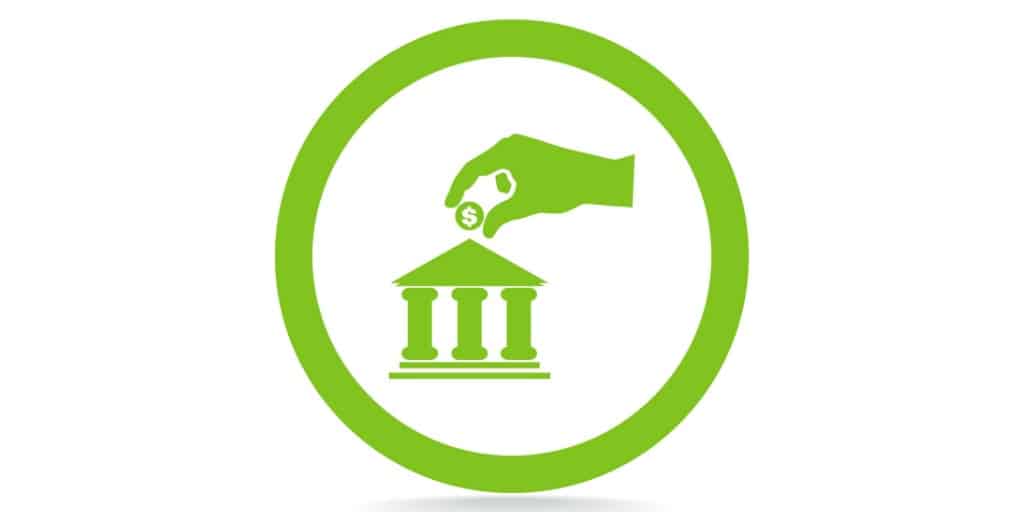Donor-Advised Funds: Are they the best way to give?
(This page may contain affiliate links and we may earn fees from qualifying purchases at no additional cost to you. See our Disclosure for more info.)
Donor-advised funds. Everyone seems to be talking about them as a better way to give to charity.
But what are they, exactly? And why have they become so popular and what are the benefits of setting up donor-advised funds for charitable giving?
You may be wondering if there’s any benefit to setting one up if you’re not mega-wealthy and only plan to donate a small percentage of your income or assets to charity.
Or does it make sense to set up a fund now and donate over time? There are some very specific benefits, and some disadvantages, to giving through a donor-advised fund (or DAF), so read on to find answers to your questions.
What's A Donor Advised Fund?
A DAF is a fund you set up with a sponsoring charitable organization, which is the term for the non-profit that oversees it, in exchange for an immediate tax write-off.
As the name implies, you (the donor) act as an advisor for your fund, indicating where you’d like to give your money over time. When you make a request for part of your money to be donated, it’s termed recommending a grant.
So, you can give a sponsoring organization $25,000 this year, take a tax write-off for the entire $25,000 in 2020, and then decide how you’d like to donate these funds (or “recommend grants”) over the next few years.
All the while the money grows tax-free in an investment vehicle like an index fund.
While these funds are no longer your money, and you can’t get them back, you can have lots of involvement in where they go and which charities they support. And your charitable organization can give you advice about giving options.

Who Manages Your DAF
There are three main types of charitable organizations that oversee donor-advised funds:
- National Non-Profit Organizations, including non-profit wings of major financial institutions like Vanguard Charitable and Fidelity Charitable that allow you to give to a variety of charities,
- Community Foundations like the Cleveland Foundation that focus on regional and community issues
- Individual (single-issue) Charities like universities, faith-based organizations, and hospitals
Your money is invested with these organizations, and it grows, tax-free, over time. If you set up a DAF with a national non-profit, you can direct your funds to whichever charities you’d like. Whenever you’d like.
Once funds are donated, they are no longer under your control. The funds now officially belong to the charity. You have irrevocably given those funds away.
You tell the charitable organization how and when to disburse the funds, however. And while a charitable organization doesn’t technically have to follow your wishes about giving, they almost always do.
How Do I Set-Up a Donor-Advised Fund?
DAFs are as easy to set up as an online investment account, especially with charitable organizations like Schwab Charitable or Vanguard Charitable.
You simply open an account (many organizations have a completely online set-up), transfer your giving dollars, and receive an immediate tax write-off for that amount of money.
You can decide how to invest your donation–you’ll usually have a choice between several investment options like targeted funds or index funds.
Then, while your giving dollars grow, you can make decisions over time about where you’d like to give those funds.
What Can I Donate?
You can donate many different types of assets to a DAF in addition to money–stocks, part of a business, real estate, cars, even livestock, or art.
Different sponsoring organizations will accept different classes of assets. They then convert those assets and donate them to your charity as a cash gift. This is helpful, especially to smaller charities, since converting stock gifts to cash can be complicated.
The rules are different for minimum contributions to open a DAF. Some sponsoring organizations, such as Schwab Charitable, have a minimum donation of $5,000. Others, like the National Philanthropic Trust, have a minimum of $25,000.
Donor-Advised Fund Benefits
1. Tax Deduction.
You can receive a large federal income tax deduction–up to 60% of your adjusted gross income–in the year you donate the funds, as long as your donation exceeds the standard deduction (which is $12,400 for single filers and $24,800 for married couples in 2020).
You can also donate funds that have appreciated, meaning that you would otherwise pay a lot of taxes on them if you sold them and spent them.
Let’s say you originally invested $5,000 ten years ago to a taxable fund, and that $5,000 has now appreciated to $20,000.
Instead of paying capital gains taxes on the $15,000 your money has grown, you can donate the entire $20,000, and receive a tax deduction on it.
You also eliminate capital gains taxes (as long as you wait a year before donating any appreciation).
2. Ease of Record-Keeping.
You don’t need to keep receipts or records for your donations, because it’s technically already been donated. Your sponsoring organization keeps records of all the places you recommend grants in a year.
This can simplify your giving, especially if you want to give to several small organizations. You can also recommend that grants be given each year to the same charity or charities, to make giving even easier.
3. Get Help.
Your charitable organization can offer you consulting services. They can advise you on whom to give, when to give, and set up a yearly giving plan for you.
Some givers set up DAFs primarily for the consulting services of a sponsoring organization.
4. Give Anonymously, or Not.
You can name your Donor Advised Fund anything you like. This can keep your giving anonymous, explain the purpose of the fund, or simply name you as the founder of the fund (for example, The Jane Riley Fund).
When you recommend a grant be given, the charity will thank both the Charitable Organization and your specific fund.
Drawbacks of DAFs
1. More Giving Dollars Wait.
The popularity of DAFs in recent years has led to some criticism of the vehicles as a way to claim immediate tax breaks, but delay giving indefinitely.
When you set up a DAF, there’s no law requiring your dollars be given following a specific timetable.
Critics claim this, in effect, hurts charities that would otherwise receive money now. So you may want to consider recommending grants in your DAF within a couple of years.
2. Limits to Giving.
There are some restrictions on giving with a DAF. For example, most of the time, you can’t use money in a DAF to fulfill a pledge you’ve already made to an organization.
You can’t recommend a grant to purchase tickets to a gala or other event that provides a benefit to you (such as dinner). And you can’t purchase tickets to such an event on your friends’ behalf. Because according to the IRS, that’s an implied benefit to you and isn’t tax-deductible.
3. Passing It Down.
The rules vary among charitable organizations about leaving your Donor Advised Fund to your heirs. Some organizations allow you to pass on funds, but not all.
Normally, DAFs have rules about how your funds should be designated after you die.
4. Dreaded Fees.
Your Donor Advised Fund, while it will be invested and grow tax-free, will be subject to fees. Usually, sponsoring organizations charge an administration fee of around 0.6% of assets PLUS another investment fee.
When deciding on a sponsoring organization, make sure to look at how much they charge in fees, because this will affect your giving, especially over time.
5. Limited Investing Options.
You’ll also want to pay close attention to the investment options available through the sponsoring charitable organization before selecting one. Typically you’ll be given a choice of narrowed-down options, so research this ahead of time.
Final Thoughts on DAFs
So, does a DAF make sense for you?
If you’ve set aside a certain amount of money for charity, AND you know your earned income will be high in the coming year, then it may make sense to set up a donor-advised fund and reduce your taxable income this year.
When you’re planning to give stock that’s appreciated over time, setting up a DAF with that stock can help you avoid paying capital gains tax.
Now that you have more information about the advantages of donor-advised funds as well as the drawbacks, you’re armed to make a better decision to help your charitable donations go further.

Article written by Laurie
Laurie is a team member of Women Who Money and the founder of The Three Year Experiment, a blog about building wealth in order to become location independent.
